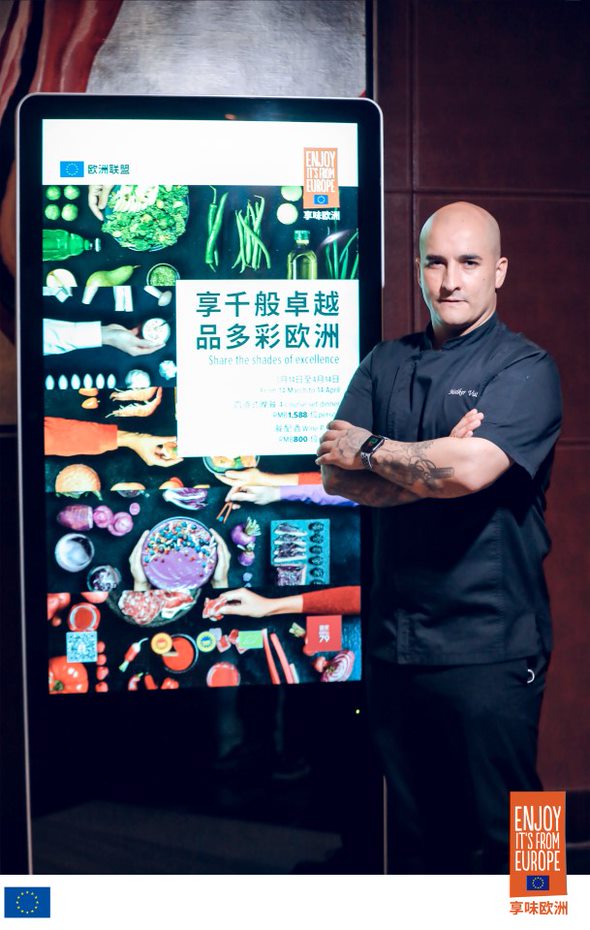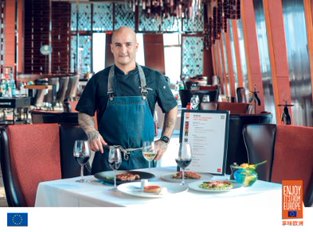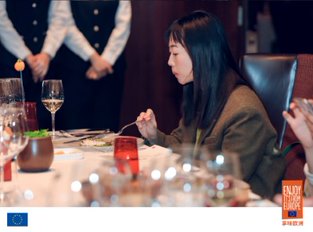The Chef’s Table Menu in China was presented at the China World Summit Wing (CWSW) in Beijing. It showcased 15 agricultural food and beverage products and 10 EU Geographical Indications (GI) products from across the EU, among others North Atlantic octopus and French Lentille verte du Puy PDO, paired with Kamptal PDO Grüner Veltliner white wine as a starter.
The four-course Chef’s Table Menu was presented by Maiker Valdivia, Executive Sous Chef of CWSW Beijing and Head of Grill 79 Restaurant.
- food industry
- Monday 14 March 2022, 09:00 - Thursday 14 April 2022, 13:00 (CEST)
Media


Chef in front of bannerChef in front of banner 

Chef presenting laid tableChef presenting laid table 

Chef's table group pictureChef's table group picture 

Participant at chef's tableParticipant at chef's table 

Participants sitting at chef's table Participants sitting at chef's table 

Serving food at chef's tableServing food at chef's table
Practical information
- When
- Monday 14 March 2022, 09:00 - Thursday 14 April 2022, 13:00 (CEST)
- Languages
- English, Chinese
Description
The first course was a North Atlantic octopus from Galicia, Spain, cooked at low temperature to preserve the natural liquid and softness. The French Lentille verte du Puy PDO is considered by most chefs to be ‘green caviar’. Puy lentils have a unique and delicate slightly sweet flavour with a hint of almond and a very delicate skin and non-starchy core. The lentils are cooked and then lightly seasoned with a hazelnut vinaigrette and served with Spanish Jabugo PDO 5J ham.
Spring provided many fresh ingredients for our menu this time, especially the sweet green peas. The second course was a classic risotto with Yunnan morels, served with Italian Grana Padano PDO and Aceto Balsamico di Modena PGI.
This was followed by Dutch calf, marinated in Provencal herbs and Spanish smoked red pepper powder Pimentón de la Vera PDO and slow roasted in a vacuum cryogenic cooking method to enhance the flavour of the steak and preserve the quality of the veal. Finished with French Moutarde Royale au Cognac and Portuguese Port PDO.
To complete the meal, a classic lemon tart, served with Crème fraîche d'Isigny PDO butter from France and a berry sauce made with strawberries, raspberries and blueberries to balance the acidity of the lemon was served.
Geographical indication labelling schemes are a guarantee of authenticity. EU quality policy aims at protecting the names of specific products to promote their unique characteristics, linked to their geographical origin and traditional know-how. There are currently over 3000 agricultural food products covered by these schemes.
